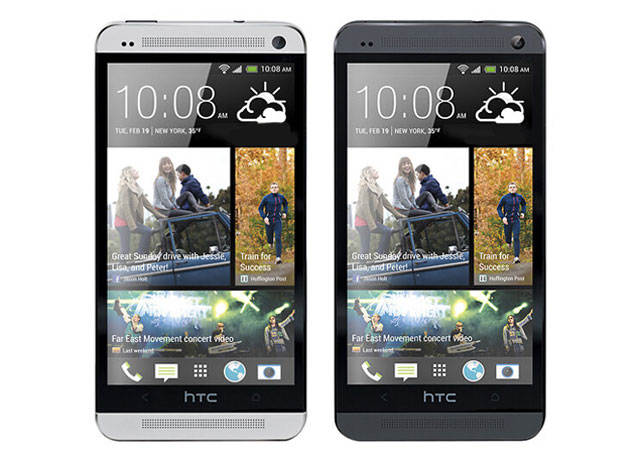
On Tuesday, at events in New York and London, Taiwan’s HTC is expected to take the wraps off the M7, its newest Android “superphone”, and a device that must take on the upcoming Samsung Galaxy S4. For HTC, it’s all on the line.
In the face of juggernaut Samsung Electronics’ ubiquitous marketing campaigns and loyal following, can HTC reverse its fortunes?
In the early days of Android, HTC made good inroads building devices that were as good as any from its peers. The problem, however, has been a lack of brand awareness — and a lack of effort by the company to improve this.
The big launch of the M7 — also possibly called the HTC One — comes just a week before the Mobile World Congress, the industry’s biggest trade show, gets underway in Barcelona, Spain – no doubt the launch has been timed to avoid the clutter of all the other announcements expected at the show.
Leaked images of M7 suggest that it closely resembles Apple’s iPhone 5, with two metal bands running across the front of the device above and below the display. HTC’s latest offering is expected to offer a larger screen than the iPhone’s, though talk is it will have a 4,7-inch 1080p display, which would equate to a remarkable pixel density of 468ppi.
The new device’s specifications haven’t been confirmed, but it’s safe to assume they’ll be impressive. It’s not that HTC needs to make radically better products; rather, it needs to get better at telling the public how good its mobile devices are.
Arthur Goldstuck, MD of research firm World Wide Worx, says HTC’s biggest problem is its lack of marketing spend. “The One X [launched in 2012] was one of the best phones in the world that no one heard about,” he says.
Although HTC’s handset arrived in the local market a little before its main rival, the Galaxy S3, and was arguably just as good a device — if not even slightly better, especially in terms of design — it was the S3 that went on to dominate the top end of Android smartphones in South Africa and elsewhere in the world because of its superior brand awareness and extensive advertising campaigns.
Goldstuck describes the S3 as a “technology and marketing triumph from Samsung”. HTC, on the other hand, has triumphed on the technology front, but has floundered on the marketing front. “Apple has taught us that a good technological solution is not enough to win the market,” he says.
HTC isn’t the only company that could learn from Samsung’s aggressive marketing. “It’s also an object lesson to BlackBerry. It has the technology right, but can it get the marketing right? You need a marketing machine, which Samsung has clearly developed,” Goldstuck says.
At the annual Consumer Electronics Show in Las Vegas last month, Samsung announced that sales of the S3 had topped 30m units — in just seven months after launch.
Although up-to-date figures for sales of the One X are not readily available, HTC did report a 91% year-on-year decline in net profit in the fourth quarter of 2012 and posted its lowest quarterly earnings since 2004, largely attributed to the lack of devices from the company in the latter half of last year.
The company clearly has a lot riding on tomorrow’s big launch. — (c) 2013 NewsCentral Media
- See also: HTC One X reviewed




